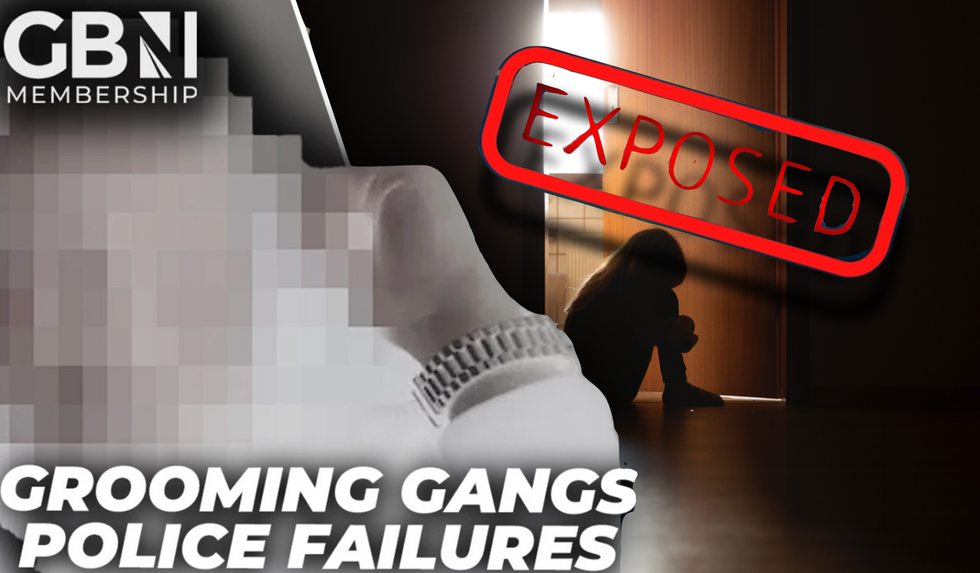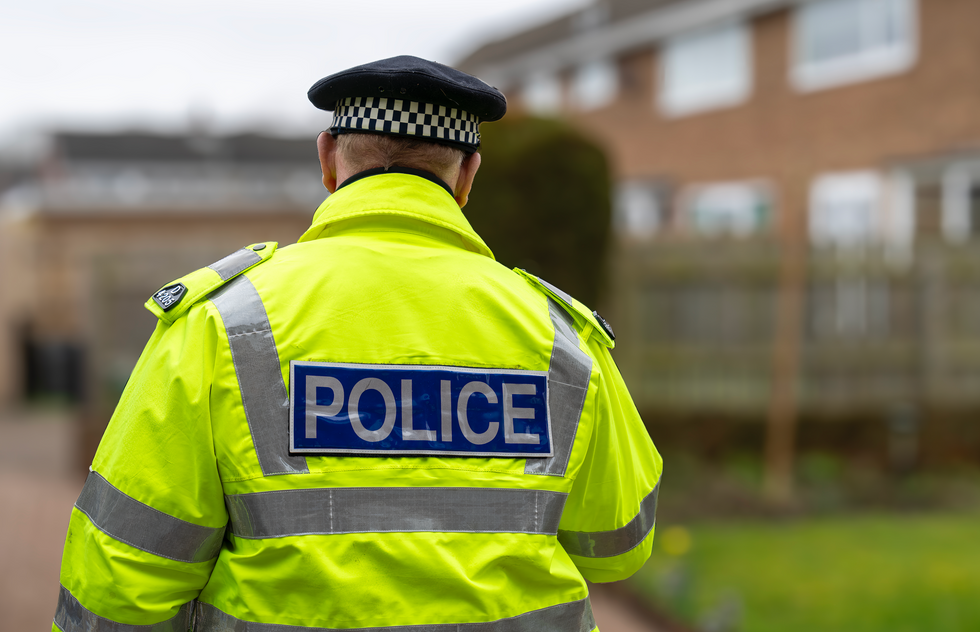EXCLUSIVE: Ex-policeman delivers shocking verdict on whether grooming gangs are STILL active: ‘It’s massive’
A retired South Yorkshire Police officer alleges that grooming gang networks are still “massive” in Britain.
His shock assessment follows multiple inquiries and investigations into the Rotherham scandal, which saw at least 1,400 working-class girls raped and trafficked by groups of predominantly Pakistani men from 1997 to 2013.
In our previous interviews with Darren Jones, whose real name we changed to protect his identity, we learned how local politicians had a corrosive influence on South Yorkshire Police’s investigations and that performance pay reviews incentivised senior officers to look the other way.
While he stresses that lessons have been learned since then and that the force has now “got its eye on the ball”, they still have their work cut out.

Jones, who was serving at the time of the Rotherham abuses, alleges that grooming gang networks are still active in the area.
“I think it’s still massive,” he told GB News.
Reports support his assertion. Philip Marshall, who is leading Operation Stovewood—the National Crime Agency’s inquiry into grooming gang activity in Rotherham from 1997 to 2013 — reported in January 2025 that his team has identified 324 men suspected of committing 1,142 crimes against 1,150 victims.
“Of those crimes, 827 relate to the offence of rape — that is a startling figure,” Marshall, told The Sunday Times. “For one child to be raped is far too many. We’re dealing with 827 rapes and another 600 crimes on top.”
So far, this extensive criminality has only resulted in 39 convictions and prison sentences.
Last month, Simon Morton, who led Operation Bullfinch for Thames Valley Police, told the BBC that individuals involved in grooming networks are still active and influencing others to carry out similar crimes.
He described grooming as a nationwide issue, claiming it is “obvious” that it is “happening in every city around the country”. Another police source supported this assertion.
Explanations differ as to why these networks have not been stamped out.
Some are procedural: prosecutions have been undermined by a lack of corroborative CCTV or DNA evidence.
Morton highlighted a pervasive mistrust among abuse survivors toward authorities, including police and social services.
He also warned that offenders have become more covert but remain active.
The retired police officer offers an alternative explanation, telling GB News: “It’s ongoing because you’ve got a problem within the Muslim community defending their own. They get released from prison, go back home and then live within the community.
“If my dad was ever arrested for some sort of child sex offence, he wouldn’t be coming back to the family. I think it’s documented that it’s acceptable to come back into the community. The faith is very protective. I’m sure that’s going on.”
He emphasised the need for community leaders to confront these behaviours and for authorities to act without fear of being perceived as racist.
LATEST MEMBERSHIP DEVELOPMENTS
- ‘I served in US Army fighting Russian aggression – I know what Trump is planning and where it leads’
- Zelensky’s new nightmare traced back to 2013 as Trump-Putin timeline littered with hidden warnings
- EXPOSED: How ‘woke’ MoD hires are paid MORE than soldiers as Starmer urged to boost defence spending

The ethnic make-up of the grooming gangs and what this may or may not tell us about the abuses remains steeped in controversy.
Nazir Afzal, who played a key role in prosecuting high-profile grooming gang cases during his tenure as the Chief Crown Prosecutor for North West England from 2011-2015, tried to appeal to calm following the fallout from the first report into the Rotherham abuses in 2014.
Afzal felt that the media’s focus on the ethnicity of the perpetrators fanned the flames of anti-Muslim bigotry and that it was better understood in the wider context of child sex abuse.
He noted that while the majority of perpetrators in these cases were of Pakistani heritage, the crimes were not religiously motivated but rather rooted in issues of male power and control.
However, Afzal did acknowledge at the time that the disproportionate involvement of Asian and Pakistani men in “localised, street grooming” of predominantly white, working-class girls had to be addressed from within the community.
“We do have an issue with people of our ethnicity – it’s not the issue but an issue – and we have to take care of it, we have to deal with it. The solution comes from within. It comes from you,” he told a group of councillors, community workers and campaigners in Bradford.
Due to under-reporting and how these cases were categorised, the exact prevalence of the problem is unknown
For example, the 2022 Independent Inquiry into Child Sexual Abuse has been heavily criticised for lumping in grooming gangs with other abuse networks.
And failures to record the ethnicity of the perpetrators in Rotherham undermined criminal investigations.
The Independent Office for Police Conduct’s (IOPC) Operation Linden, which investigated South Yorkshire Police’s handling of child sexual exploitation (CSE) cases in Rotherham between 1997 and 2013, highlighted how the South Yorkshire Police force failed to record the ethnicity of suspects in 67 per cent of CSE non-cyber enabled cases in the Rotherham District in 2019.
A chief inspector indicated that the force had been aware of similar abuse for 30 years but had ignored it for fear of increasing racial tensions.
The ex-cop is in no doubt about the role that this played in failing to bring the rapists to justice, telling GB News that “because of the Asian influence in Rotherham, there were a lot of people not touched because they were just absolutely sh**t scared, for want of a better word, of daring to question any sort of Asian activity, because at that time Rotherham council was heavily populated by people of the Asian community”.
As calls for a national inquiry grow louder, the government has committed to implementing recommendations from the 2022 Independent Inquiry into Child Sexual Abuse (IICSA), chaired by Professor Alexis Jay.
Home Secretary Yvette Cooper has also announced plans to introduce a new offence this year, imposing professional or criminal sanctions on individuals who fail to report or cover up child sexual abuse.
Marshall’s team has 40 “live” investigations, nine cases listed for trial in 2025-26, and is awaiting charging decisions on several others. They are trying to secure the return of three suspects who have left the jurisdiction.
In response to a request for comment, Detective Superintendent Pete Quinn, South Yorkshire Police’s strategic lead for Child Safeguarding, said: “There never has and there never will be a good reason for failing to properly investigate child sexual exploitation. Whilst the abuse of young people in Rotherham in the late 90s and early 00s will always be of profound regret to South Yorkshire Police, it was the beginning of an improved future – a future of independent and national oversight.
“Reports of CSE in our region have long since been investigated by dedicated local multi-agency teams but our approach is now subject to structured governance by force leads and external bodies to ensure we are preparing, preventing, protecting, and pursuing in line with best practice and, crucially, without fear or favour.”

